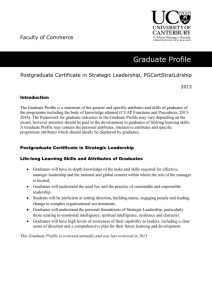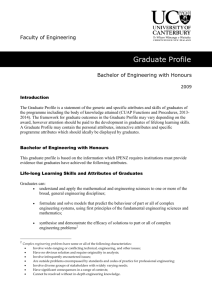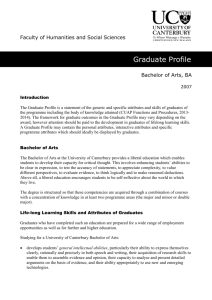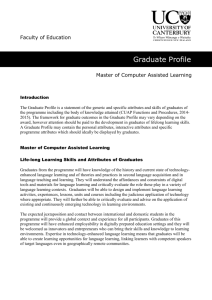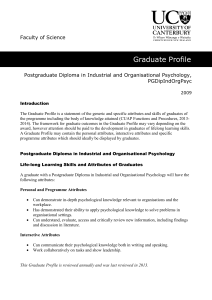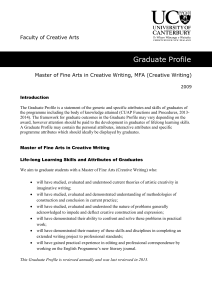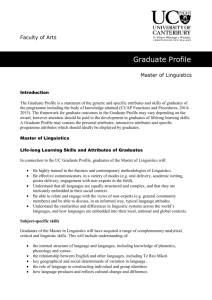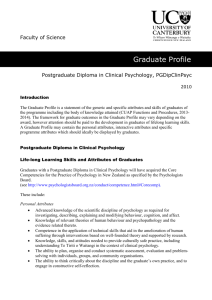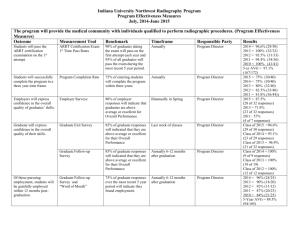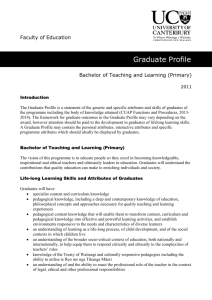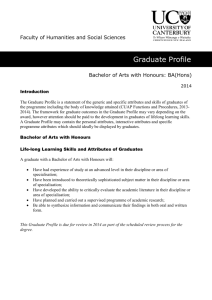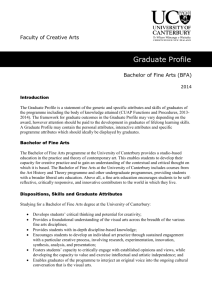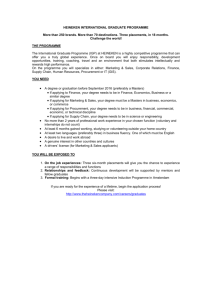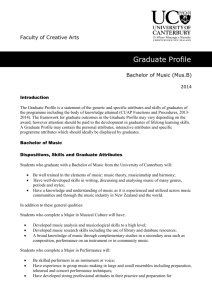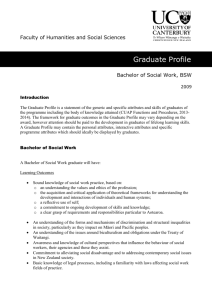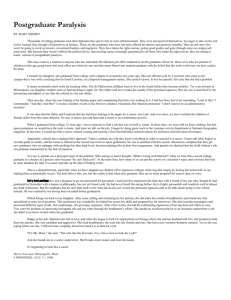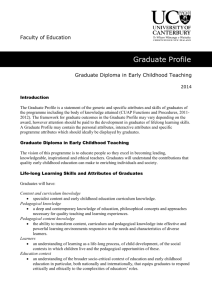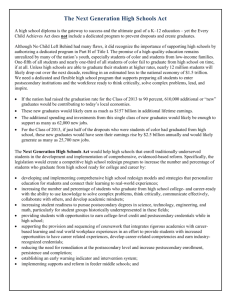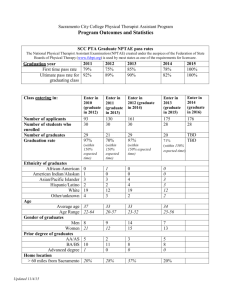Tertiary Teaching
advertisement
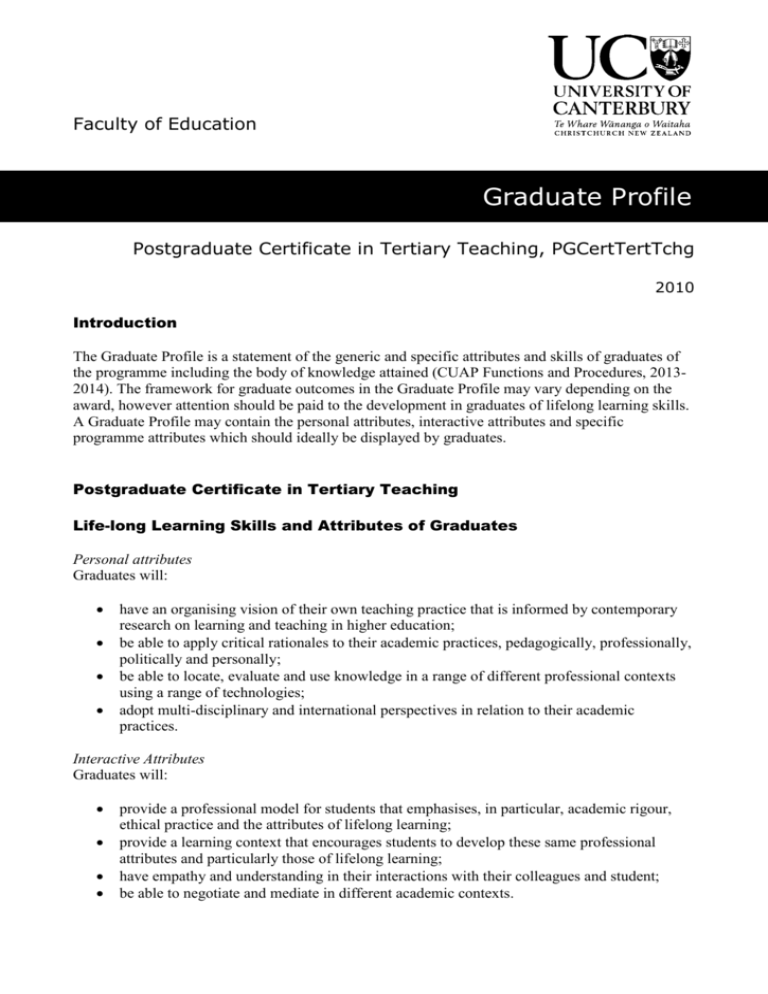
Faculty of Education Graduate Profile Postgraduate Certificate in Tertiary Teaching, PGCertTertTchg 2010 Introduction The Graduate Profile is a statement of the generic and specific attributes and skills of graduates of the programme including the body of knowledge attained (CUAP Functions and Procedures, 20132014). The framework for graduate outcomes in the Graduate Profile may vary depending on the award, however attention should be paid to the development in graduates of lifelong learning skills. A Graduate Profile may contain the personal attributes, interactive attributes and specific programme attributes which should ideally be displayed by graduates. Postgraduate Certificate in Tertiary Teaching Life-long Learning Skills and Attributes of Graduates Personal attributes Graduates will: have an organising vision of their own teaching practice that is informed by contemporary research on learning and teaching in higher education; be able to apply critical rationales to their academic practices, pedagogically, professionally, politically and personally; be able to locate, evaluate and use knowledge in a range of different professional contexts using a range of technologies; adopt multi-disciplinary and international perspectives in relation to their academic practices. Interactive Attributes Graduates will: provide a professional model for students that emphasises, in particular, academic rigour, ethical practice and the attributes of lifelong learning; provide a learning context that encourages students to develop these same professional attributes and particularly those of lifelong learning; have empathy and understanding in their interactions with their colleagues and student; be able to negotiate and mediate in different academic contexts. Specific Programme Attributes Graduates will: be able to design effective teaching courses, or part of a teaching programme, from a course and/or subject outline; have a repertoire of teaching methods and learning tasks that are appropriate to students from different backgrounds, a range of group sizes and the area/s of study for which they are intended, including tasks which support independent learning; have a repertoire of contextually appropriate assessment methods, including those that encourage student self assessment; be able to consult with and provide support to students, including negotiation of aspects of subject content, teaching/learning activities and assessment and the provision of effective support for completion of learning and/or assessment tasks; obtain and be able to draw on a variety of sources of data (self, peer/expert, student, profession, community) to evaluate their own educational practices; use appropriate coping strategies to approach academic work in a way that responds to the requirements, constraints and opportunities of the institutional setting; be able to bring the benefits of scholarly inquiry, including inquiry into educational practices in higher education to their academic work, the profession and the wider community; be able to reflect critically on their own academic practices and development, assess their future development needs and plan for and enact their continuing development. This Graduate Profile is reviewed annually and was last reviewed in 2013. 2
